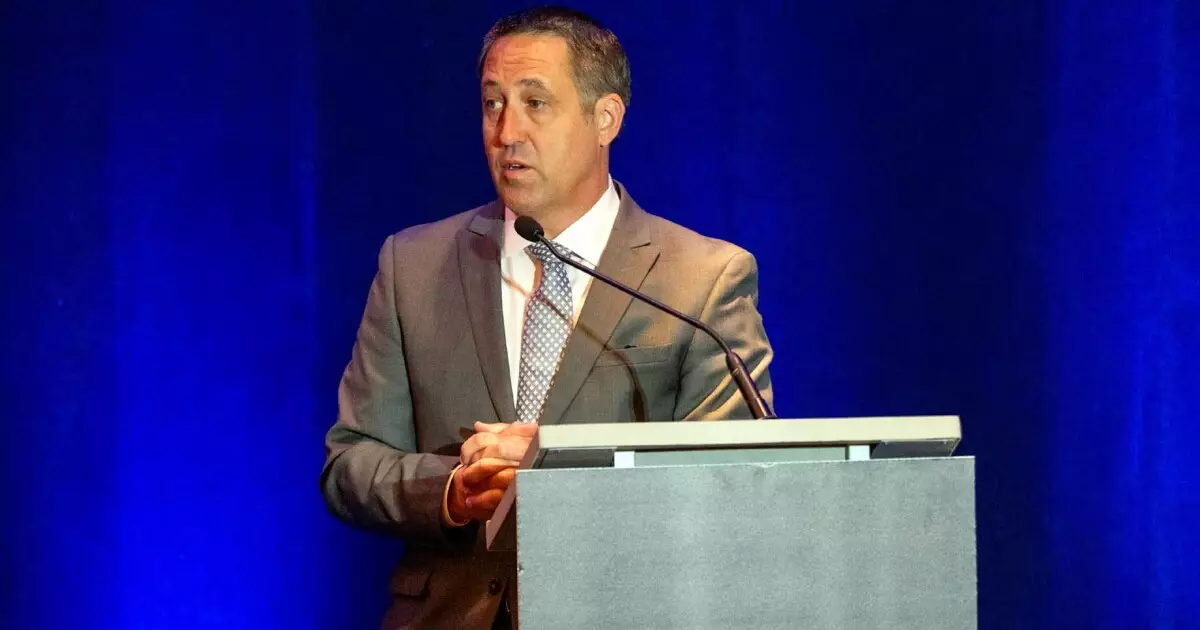The recent news about BlackRock Inc.’s removal from Texas’ blacklist—a three-year freeze rooted in the firm’s environmental stance—is more than just a corporate maneuver; it is a significant political development that reflects the realignment of interests in the face of an evolving energy landscape. With revenues exceeding $10 trillion in assets under management, BlackRock’s influence cannot be overstated. The decision not only allows state funds to flow freely into BlackRock’s assets but also signals a shift in the balance of power between environmental advocacy and Texas’ economic priorities.
The Illusion of Green Investment
When Larry Fink, CEO of BlackRock, took the stage with Texas leaders, it marked a considerable turn in their philosophy. Previously touted as a vanguard of sustainable investment, BlackRock’s withdrawal from initiatives aimed at curbing climate change raises pertinent questions about corporate responsibility. Have they abandoned the principle of “green” in the face of a shiny dollar sign? The apparent spectrum of moral responsibility is being drawn thinner, revealing starkly that profit often eclipses principles. The idea of ethical finance deserves scrutiny, especially when considered against the backdrop of a political entity like Texas, which prides itself on less government oversight yet appears willing to compromise on climate goals.
The Economic Impetus for Change
State Comptroller Glenn Hegar’s statement that BlackRock has dialed back its commitment to environmental policies should not be dusted under the rug. The move is a pragmatic acknowledgment of market realities. With over $300 billion in state-run investment accounts now allowed to back BlackRock, we must consider what this means for economic growth in the state. The fossil fuel industry is still a bedrock of Texas’ economy. Embracing a broader investment strategy that includes traditional energy and energy innovation may be the path forward, but doing so at the expense of long-term environmental goals is a precarious balancing act.
Political Ramifications and Future Implications
This development could wave a green flag to firms with similar ecological credos: a warning that Texas will not go quietly into the night of eco-conscious investing. The corporate world should now understand that the appetite for profit can often overshadow progressive ideals, especially in resource-rich states. As BlackRock strengthens its relationship with Texas—with initiatives like the Dallas-based Texas Stock Exchange—it portrays a future that appears inherently tethered to fossil fuels. And why shouldn’t it? Energy independence and creation of jobs in oil and gas remain paramount in a state that thrives on energy production as its economic lifeblood.
BlackRock’s Acknowledgment of Real-World Factors
In a landscape dominated by stringent regulations, BlackRock’s decisions can serve as a guide for other firms weighing the dichotomy between social responsibility and fiscal health. The company’s retreat from environmental pacts signifies that even the most influential players have recognized the need for flexibility in adapting to regional economic traits. This pivot could represent a roadmap for how businesses reconcile shareholder interests against the growing calls for sustainability. The tantalizing squeeze between ecological obligations and economic prosperity will likely sharpen, encouraging dialogues that edge closer to pragmatic solutions.
Through all these lenses, BlackRock’s re-emergence in Texas illustrates a complex interplay between investment strategies, political affiliations, and economic realities that cannot be ignored. The narrative reflects a growing acknowledgment that in the world of finance, it is not merely benevolence that drives investment, but rather, the cold, hard calculations of return on investment that ultimately rule the day.

